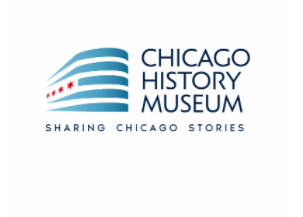Chicago Boys and Girls Club records
Descriptive Summary
- Title
- Chicago Boys and Girls Club records
- Dates
- 1901-1969,
- Predominant Dates
- bulk 1940-1967
- Creator
- Boys and Girls Clubs of Chicago
- Creator
- Chicago Area Project, Chicago Boys Clubs, Chicago Boys and Girls Club, Chicago Council of Social Agencies, Council of the Southern Mountains. Chicago Chapter. Especially box 187, Off the Street Club (Chicago, Ill.), Welfare Council of Metropolitan Chicago, YMCA of Metropolitan Chicago, Young Men's Christian Association (Chicago, Ill.)
- Size
- 98.75 linear ft.
- Size
- 1 oversize folder.
- Size
-
sound discs :
analog.
- Language
- Material is in English unless otherwise noted.
Scope and Content
This description does not include unprocessed additions to the collection.
Scope and Content
Correspondence, minutes, memoranda, reports, announcements, maps, surveys, financial records, phonograph records, newsclippings, and other administrative files of the Chicago Boys and Girls Club's central office, primarily relative to fundraising, policy making, expansion and equipping of the neighborhood Boys and Girls Clubs, and coordination of their activities. Topics include recreation and team and individual sports; camping at Camp Lucerne and Winona Lake Camp in Indiana and Kemah-Crane Camp in Wisconsin; juvenile delinquency, gangs, social group work; race relations; cooperation with other social service organizations, particularly the YMCA, the Chicago Area Project (1930s), and the Chicago Council of Social Agencies (later the Welfare Council of Metropolitan Chicago); neighborhood needs assessments, and in the 1960s, participation in federal anti-poverty programs. Correspondents include administrators of CBGC, particularly John H. Witter, Irving Rudolph, Joseph N. Clemens, and Fred Lickerman; Boy's Clubs of America and other national and professional organizations with which the staff was associated; and many Chicagoans who have been CBGC supporters, including Ralph A. Bard, the Crane family, William H. Regnery, William M. Spencer, W. Clement Stone (president of the CBC in the 1960s), and Robert E. Wood.
The neighborhood clubs have been particularly active in several Chicago communities: Near West Side, Lower West Side, South Lawndale, East Garfield Park, Bridgeport, Woodlawn, Avondale, Logan Square, Lincoln Park, and Uptown. The constituency of the clubs reflected neighborhood population changes, including youths from white, immigrant and ethnic groups in the early years and beginning in the late 1940s, more Latino and African American youths. Also present are materials on the Off-the-Streets Club (1960s), which was not one of the CBC's clubs.
Conditions for Access
For listening purposes, it is necessary to use a copy, not the original (and to have a listening copy made if one is not available).
Conditions Governing Use
Contact the archives for more information on licensing and permissions for use and reproduction.
Preferred Citation
A common citation for archives is as follows: Item, Folder number and/or title, Box number, Collection title, ID number, Repository name, location.
Custodial History
Most of the collection was a gift of the Chicago Boys Clubs beginning in 1974 (M1974.0011).
Biography or History
Non-profit youth recreation organization; founded 1901 as Chicago Boys Clubs; Black and Latino membership began increasing in late 1940s; participated in federal anti-poverty programs in the 1960s. The Chicago Boys Clubs changed its name ca. 1985 to Chicago Boys and Girls Club to reflect the fact that the organization had long included programs for girls as well as boys, and ca. 1989 changed its name to Boys and Girls Clubs of Chicago.
Descriptive inventory available for a portion of the collection.
Indexed Terms
- Chicago Boys Clubs -- Archives
- Chicago Boys and Girls Club -- Archives
- Camp Lucerne (Warsaw, Ind.)
- Kemah-Crane Camp (Williams Bay, Wis.)
- Winona Lake Camp (Winona Lake, Ind.)
- African American youth -- Illinois -- Chicago -- 20th century
- Boys -- Recreation
- Boys -- Illinois -- Chicago -- Societies and clubs
- Camping -- Indiana
- Camping -- Wisconsin -- Williams Bay
- Charities -- Illinois -- Chicago -- 20th century.
- Fund raising -- Illinois -- Chicago -- 20th century
- Gangs -- Illinois -- Chicago -- 20th century
- Girls -- Recreation
- Girls -- Illinois -- Chicago -- Societies and clubs
- Hispanic American youth -- Illinois -- Chicago -- 20th century
- Minorities -- Services for -- Illinois -- Chicago
- Social group work -- Illinois -- Chicago -- 20th century
- Youth -- Recreation
- Youth -- Illinois -- Chicago -- Societies and clubs
- Chicago (Ill.) -- Social conditions -- 20th century
- Avondale (Chicago, Ill.)
- Bridgeport (Chicago, Ill.)
- East Garfield Park (Chicago, Ill.)
- Lincoln Park (Chicago, Ill. : Community area)
- Logan Square (Chicago, Ill.)
- Lower West Side (Chicago, Ill.)
- Near West Side (Chicago, Ill.)
- South Lawndale (Chicago, Ill.)
- Uptown (Chicago, Ill.)
- Woodlawn (Chicago, Ill.)
- Announcements
- Correspondence
- Financial records
- Maps
- Minutes
- Newspaper clippings
- Phonograph records
- Reports
Citation/Reference
NUCMC MS 92-798630.
